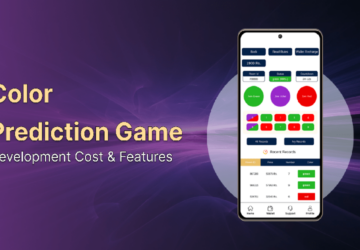According to experts, April 11 1954 was the most unremarkable and dull day of the 20th century. Despite noteworthy events occurring daily, none happened on that particular day. A computer search program analyzed over 300 million significant occurrences throughout the century to discover that fact.
We will explain in this article why is April 11, 1954 the most boring day in history.
11 April 1954: Overview
True Knowledge is a search engine that Cambridge University technologist William Tunstall-Pedoe developed. He analyzed 300 million facts about “people, places, business, and events” to determine the noteworthy events of a particular day.
These were the most significant events that occurred on that day, based on the search engine’s analysis. According to True Knowledge’s sophisticated algorithms, the Sunday of 1954 was as an exceptionally obscure day. The analysis revealed that there were no significant deaths or major events recorded on that particular day.
Note that many notable individuals are typically born on a typical day in the 20th century. But only one person, Abdullah Atalar, a Turkish academic, could lay claim to being born on that day. The Telegraph quoted Tunstall-Pedoe, who referred to the day as unremarkable.
Calculation Shows that 11/04/1954 is the Most Boring Day
According to Tunstall-Pedoe, the creator of True Knowledge, he found that April 11/04/1954 was the most uneventful day. He found out that fact after conducting calculations. However, he noted that this day is only interestingly dull unless you were Abdullah Atalar. He implied that Atalar might have found a way to make the day exciting.
There are also rumors that people plotted plans for a coup d’etat in Yanaonon the same evening. But no action happened. Tunstall-Pedoe clarified that True Knowledge is not primarily for searching dull days. Instead, it’s only a side feature of the platform.
Original Purpose of “True Knowledge”
The original purpose of its creation was to offer a smarter approach to exploring the vastness of the internet. Currently, Professor Abdullah Atalar studies atomic force microscopy and the design of digital integrated circuits at Bilkent University. Interestingly, April 30, 1930, was the most uneventful day of the 20th century.
This was due to a BBC Radio presenter announcing during the 6.30 pm news bulletin that “there is no news” at that time. Unlike popular search engines such as Google, True Knowledge provides a straightforward answer to a user’s question instead of presenting a list of links.
True Knowledge boasts a vast database capable of storing hundreds of millions of facts about various topics, including people, places, events, and businesses.
What is True Knowledge?
True Knowledge is an innovative search engine that utilizes a distinctive approach to search technology, to provide users with accurate and reliable information. It’s unlike traditional search engines, which rely on keywords and links to rank search results.
True Knowledge employs a semantic database that comprehends the meaning of search queries and provides direct answers. The semantic database employed by True Knowledge is grounded in a vast collection of structured data and ontologies.
This allows the search engine to identify relationships between various concepts and entities. This enables True Knowledge to analyze user queries and provide precise answers instead of generating a list of possibly pertinent web pages.
Final Words
True Knowledge is also designed to learn from user interactions and improve its understanding of language and concepts over time. As users interact with the search engine and provide feedback on the accuracy of its responses, True Knowledge can refine its semantic database and provide even more accurate and relevant answers to future queries.
Overall, True Knowledge represents a significant advancement in search technology, providing users with a more intuitive and accurate way to access information online. By leveraging the power of semantic search, True Knowledge is helping to bridge the gap between human language and the digital world, enabling users to find the answers they need quickly and easily.








